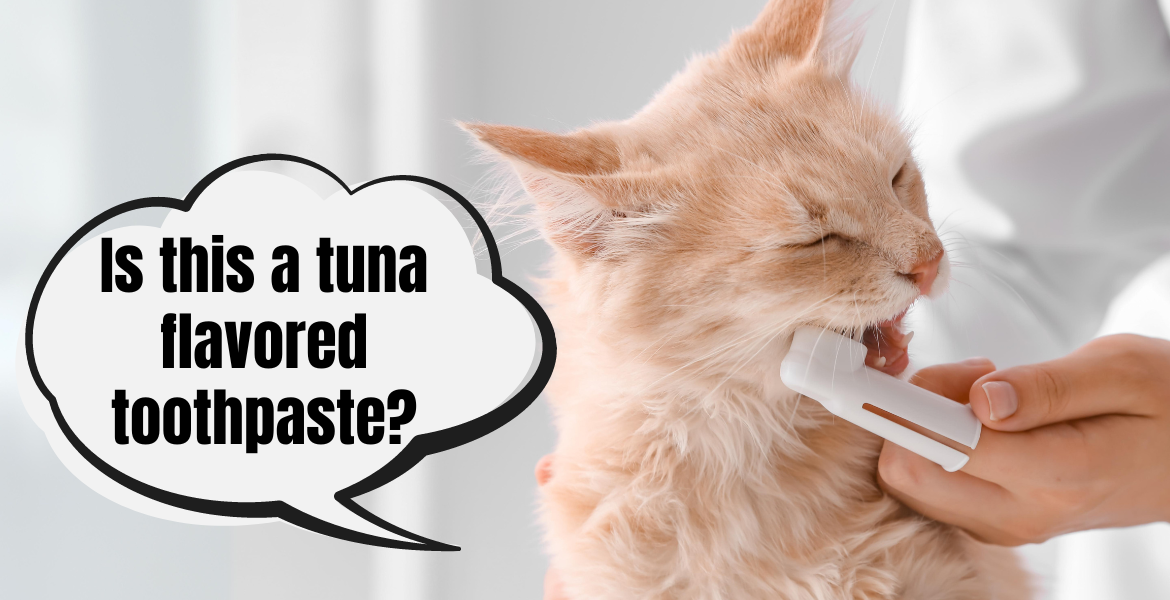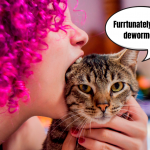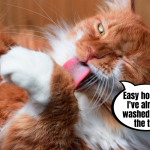Today is Fresh Breath Day – the perfect time to discuss why cats might not necessarily boast of it. As obligate carnivores, cats have a completely different metabolism, and the smell coming from their mouths is significantly different from what we are used to. That’s just nature for you. Some cat Guardians find feline breath unpleasant, others treat it neutrally, but every fabCat should know how their cat’s breath “smells” usually and when it deviates from the norm, signaling that something is wrong in the cat’s mouth. Today, we’ll check with you what bad breath in cats might mean and how to deal with it. Stay tuned, fabCats 🙂
Grab a brush and toothpaste. Yes, cat teeth also need care
Some might say it’s a new gimmick from cat lovers who no longer know how to “make their cats happy.” Meanwhile, it’s not a new trend but an increase in awareness among cat Guardians about their pets’ health and how oral health impacts the entire body. Similarly to us humans, food particles accumulate in a cat’s mouth and are broken down by bacteria. This leads to plaque and tartar. These, in turn, can lead to inflammation around the gums. Inflammation not only causes discomfort to the cat but also contributes to bad breath. Worse, bacteria can travel to other parts of the cat’s digestive system and wreak havoc throughout the feline body.
Of course, there will always be voices saying, “Wild cats don’t brush their teeth and they manage somehow.” True! But the diet of large wild cats and the way they consume their food is different from what our purring couch potatoes do. Wild cats tear large pieces of meat with their teeth, which naturally helps remove debris from the surface of their teeth. They also strip meat from bones, which further aids in oral hygiene. A kitty eating soft pate from a bowl doesn’t have that opportunity. And dry food doesn’t clean teeth – on the contrary, it leaves a sticky residue. It’s a bit like us trying to clean our teeth with chips. It’s time to grab a toothbrush, fabCat.
Causes of bad breath in cats
Brushing teeth isn’t all there is about a cat’s mouth hygiene and the lack of brushing is, of course, only one element that affects a cat’s breath. Cat health plays a much bigger role here, both in the mouth and throughout the body. The most common problems that can manifest with a breath that can knock out like Shrek’s breath include:
Periodontal diseases. Plaque accumulation on the teeth and around the gums can lead to serious inflammation and disease throughout the body. A cat with bad breath is likely suffering – they might have trouble eating, scratch their mouth area more often, drink more, and vocalize loudly. These are all signs that should convince you to visit a veterinary office and a cat dentist. The sooner you solve the problem and take care of daily oral hygiene, the better for the overall health of your kitty. And if it comes down to it, removing bad teeth is healthier for the cat than living with oral diseases.
Improper diet. Naturally, it affects breath freshness, not just in our pets. Cats are strict carnivores, and if we feed them appropriately, their odors shouldn’t bother us either around the mouth or in the litter box. However, commercial cat foods often contain many flavor enhancers, carbohydrates, and sugars which are unnecessary in a carnivore’s diet. They can cause gastric problems, bad breath, and litter box issues. Moreover, a cat might be sensitive or allergic to some products (including certain types of meat), directly affecting the freshness of their breath and overall well-being.
Liver and kidney diseases. Although seemingly unrelated to the cat’s mouth, liver and kidney health can significantly affect the cat’s breath. After ruling out direct mouth problems, it’s worth conducting full blood and urine tests and an ultrasound to exclude more serious and concerning health issues.
Diabetes. This can also directly affect a cat’s breath and wreak havoc inside the cat’s body. Don’t underestimate it, fabCat.
Tumors. These occur in cats as well as in humans. If they show up in the mouth or digestive system, they can cause an unpleasant smell of a cat’s breath.
How to take care of a cat’s breath when something bad is already going on?
Eliminating the cause of bad breath is, of course, the main goal. Whether it requires oral cleaning, tooth extraction, treating inflammations, or performing full diagnostics to make a diagnosis, it’s worth taking steps as soon as possible. If it turns out that bad breath is a symptom of an improper diet or the need to improve oral hygiene, you have some work ahead, fabCat, but it’s not all bad – a healthy kitty is already a huge reason to be happy.
Where to start with cat dental care? You’ll need a soft toothbrush (a small one that fits on your finger) and special cat toothpaste. You can also use convenient oral hygiene wipes for cats, which are usually easier for beginners. Start training with tooth brushing by getting the cat used to touching around their mouth area – massaging with a finger, gently opening the mouth, touching their gums. Reward the cat for good behavior and develop positive associations. Once the cat realizes that nothing bad is happening, you can put a bit of toothpaste on your finger, so the cat can get to know its taste, but still without the additional hurdle, the toothbrush. You will introduce it gradually, considering that the cat might not like the brush, and the stage of applying toothpaste with a finger or wiping with wipes might be a step they cannot overcome. That’s okay too! As they say, something is better than nothing. Still, we keep our fingers crossed for your success!
Have your cats been taught to brush their teeth, fabCats? Have you had to visit a cat dentist at least once? Let us know in the comments or drop by our Facebook profile to chat → https://www.facebook.com/myKottypl/




